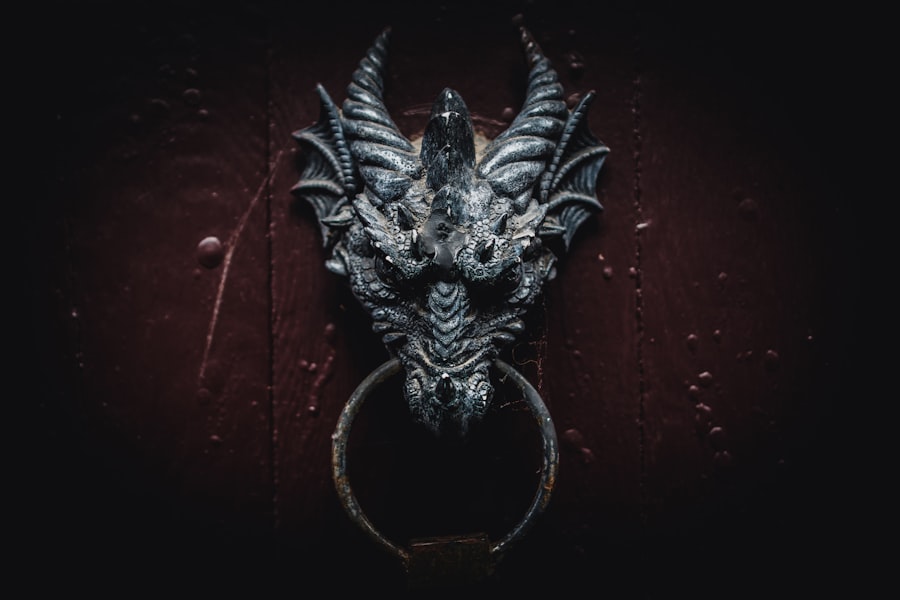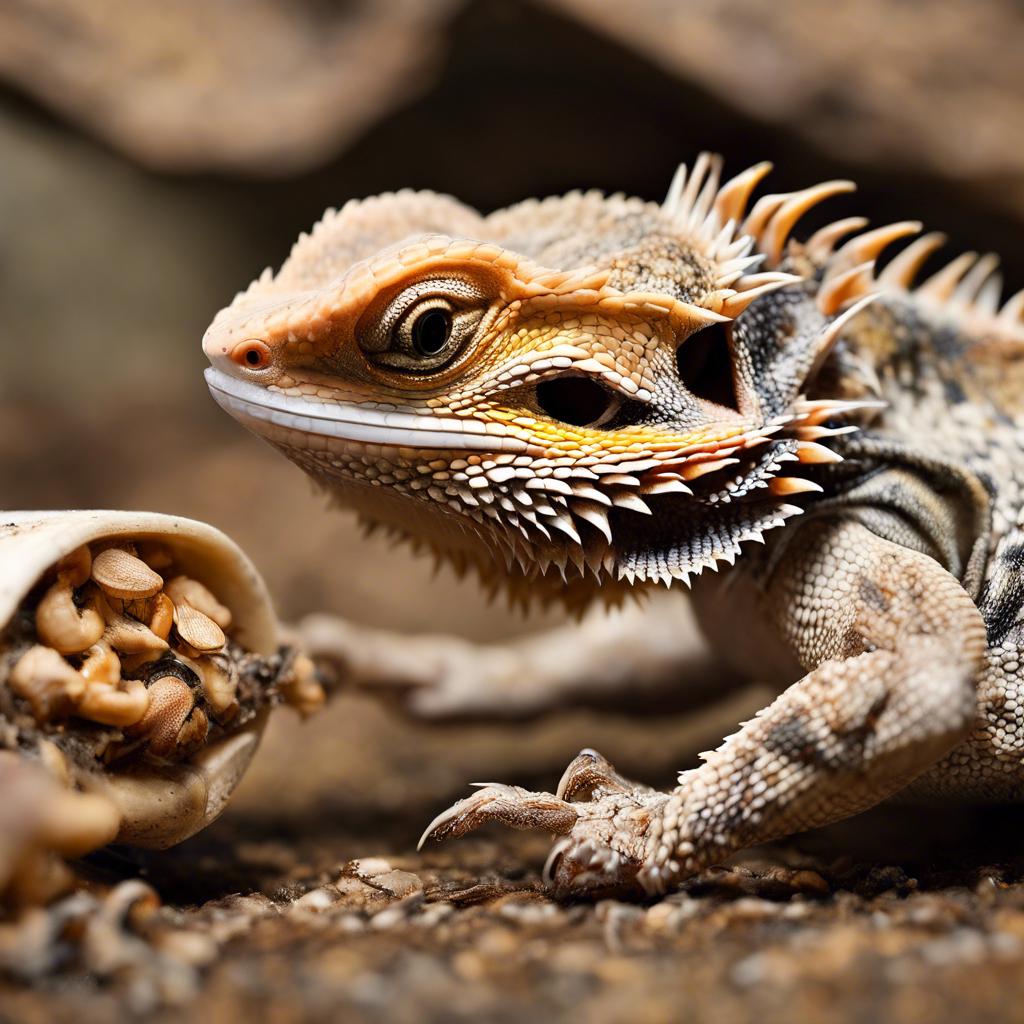Bearded dragons are popular reptile pets known for their unique appearance and docile nature. As responsible pet owners, it is crucial to understand the nutritional needs of these creatures to ensure their health and well-being. One important aspect of their diet is the inclusion of superworms, which provide essential nutrients. In this article, we will explore the importance of feeding bearded dragons the right amount of superworms and the potential consequences of overfeeding or underfeeding.
Key Takeaways
- Bearded dragons have specific nutritional needs that must be met for optimal health.
- Feeding your bearded dragon the right amount of superworms is crucial for their well-being.
- Factors such as age, size, and activity level can influence the number of superworms a bearded dragon should consume.
- It's important to monitor your bearded dragon's appetite and adjust their superworm intake accordingly to avoid overfeeding or underfeeding.
- Introducing superworms as part of a varied diet can provide numerous benefits for your bearded dragon's health.
Understanding the Nutritional Needs of a Bearded Dragon
Bearded dragons require a balanced diet that consists of protein, fat, vitamins, minerals, and calcium. Protein is essential for growth and muscle development, while fat provides energy. Calcium is crucial for bone health and proper functioning of the nervous system. Superworms are an excellent source of nutrition for bearded dragons as they are high in protein and fat. They also contain calcium, although it is important to note that the calcium-to-phosphorus ratio in superworms is not ideal. Therefore, it is necessary to supplement their diet with calcium powder to ensure they receive adequate amounts.
The Importance of Feeding Your Bearded Dragon the Right Amount of Superworms
Feeding your bearded dragon the right amount of superworms is crucial for their overall health. Overfeeding can lead to obesity, which can put strain on their organs and joints. It can also lead to fatty liver disease, a condition that affects the liver's ability to function properly. On the other hand, underfeeding can result in malnutrition and stunted growth. It is important to strike a balance and provide your bearded dragon with an appropriate amount of superworms to meet their nutritional needs.
Factors That Influence the Number of Superworms a Bearded Dragon Should Consume
Several factors can influence how many superworms your bearded dragon should consume. Age, size, and activity level are important considerations. Younger bearded dragons require more protein for growth, so their superworm intake will be higher compared to adult dragons. Size also plays a role, as larger dragons have higher energy requirements. Additionally, the activity level of your bearded dragon can affect their superworm intake. More active dragons may require more food to meet their energy needs.
How to Determine the Appropriate Number of Superworms for Your Bearded Dragon
To determine the appropriate number of superworms for your bearded dragon, you can use a general guideline based on their age, size, and activity level. For example, a young bearded dragon (less than six months old) may require around 10-15 superworms per day, while an adult dragon may only need 5-7. However, it is important to remember that these are just guidelines and individual needs may vary. It is crucial to monitor your bearded dragon's weight and adjust their superworm intake accordingly.
The Risks of Overfeeding or Underfeeding Superworms to Your Bearded Dragon

Overfeeding or underfeeding superworms can have negative consequences for your bearded dragon's health. Overfeeding can lead to obesity, which can increase the risk of various health issues such as heart disease and metabolic disorders. It can also put strain on their joints and lead to mobility issues. On the other hand, underfeeding can result in malnutrition and stunted growth. It is important to find the right balance and provide your bearded dragon with an appropriate amount of superworms to ensure their health and well-being.
The Role of Age and Size in Determining the Number of Superworms a Bearded Dragon Should Eat
Age and size are important factors in determining the number of superworms a bearded dragon should eat. Younger dragons require more protein for growth, so their superworm intake will be higher compared to adult dragons. For example, a bearded dragon that is less than six months old may require around 10-15 superworms per day. As they grow older, their protein requirements decrease, and their superworm intake can be reduced to 5-7 per day. Size also plays a role, as larger dragons have higher energy requirements and may need more superworms to meet their needs.
How to Monitor Your Bearded Dragon's Appetite and Adjust Their Superworm Intake Accordingly
Monitoring your bearded dragon's appetite is crucial to ensure they are getting the right amount of superworms. It is important to pay attention to their behavior and appetite. If your bearded dragon consistently refuses food or shows a lack of interest, it may indicate that they are being overfed. On the other hand, if they are constantly begging for food or appear hungry even after eating, it may indicate that they are not getting enough. Adjusting their superworm intake accordingly is essential to maintain their health and well-being.
The Benefits of Feeding Your Bearded Dragon a Varied Diet That Includes Superworms
Feeding your bearded dragon a varied diet is important to ensure they receive a wide range of nutrients. Superworms are a valuable addition to their diet as they provide essential protein and fat. They also offer variety and can help prevent boredom with their food. Additionally, the act of hunting and capturing live prey can provide mental stimulation for your bearded dragon. Including superworms in their diet can contribute to their overall health and well-being.
Tips for Introducing Superworms into Your Bearded Dragon's Diet
When introducing superworms into your bearded dragon's diet, it is important to start with small amounts and gradually increase the quantity over time. This allows your bearded dragon's digestive system to adjust to the new food. It is also important to provide a balanced diet that includes other insects, vegetables, and fruits. Introducing new foods slowly can help prevent digestive problems and ensure your bearded dragon's health.
Consulting with a Veterinarian to Ensure Your Bearded Dragon's Nutritional Needs Are Being Met
Consulting with a veterinarian who specializes in reptile care is crucial to ensure your bearded dragon's nutritional needs are being met. A veterinarian can provide valuable advice on feeding your bearded dragon and monitor their health. They can also help determine the appropriate amount of superworms for your bearded dragon based on their individual needs. Regular check-ups with a veterinarian are important to ensure your bearded dragon remains healthy and receives the proper nutrition.
Feeding your bearded dragon the right amount of superworms is essential for their health and well-being. Understanding their nutritional needs and monitoring their appetite is crucial to ensure they receive the appropriate amount of food. Factors such as age, size, and activity level should be taken into account when determining their superworm intake. Consulting with a veterinarian who specializes in reptile care can provide valuable guidance and ensure your bearded dragon's nutritional needs are being met. By providing a varied diet that includes superworms, you can contribute to the overall health and happiness of your bearded dragon.
If you're wondering how many superworms your bearded dragon should eat in a day, you'll find some helpful insights in this informative article from Reptile Wizard. They provide expert advice on reptile keeping and have a wide range of articles covering various topics related to reptiles. To learn more about the dietary needs of your bearded dragon and how to properly care for them, check out their blog section. Additionally, Reptile Wizard offers a comprehensive website with valuable resources for reptile enthusiasts. Click here to read the article on how many superworms a bearded dragon should eat a day.
FAQs
What are superworms?
Superworms are the larvae of the darkling beetle and are commonly used as a food source for reptiles, including bearded dragons.
How many superworms should a bearded dragon eat a day?
The number of superworms a bearded dragon should eat per day depends on its age and size. Generally, adult bearded dragons can eat 5-10 superworms per day, while juvenile bearded dragons can eat 2-3 superworms per day.
Can bearded dragons eat only superworms?
No, bearded dragons should have a varied diet that includes a mix of insects, vegetables, and fruits. Superworms should not be the sole food source for bearded dragons.
What are the nutritional benefits of superworms for bearded dragons?
Superworms are a good source of protein and fat for bearded dragons. They also contain calcium, which is important for bone health.
Can bearded dragons eat too many superworms?
Yes, bearded dragons can overeat on superworms, which can lead to obesity and other health problems. It is important to feed them in moderation and provide a varied diet.
How should superworms be prepared before feeding them to a bearded dragon?
Superworms should be gut-loaded with nutritious food and dusted with calcium powder before feeding them to a bearded dragon. They should also be the appropriate size for the bearded dragon to avoid choking.

